Inclusion every day. A reminder to make room for people of all identities, genders, abilities, and backgrounds.
Each year we celebrate World Inclusion Day on October 10th. But often, it ends at just that. Has inclusion been reduced to a buzzword? Honestly, it always was. It is high time we looked beyond the tokenism. Inculcate it as a practice. As a mindset. Not limit it to just a day for awareness sharing Instagram stories or updating display pics. Go beyond awareness and take action.
I have previously shared book recommendations on gender equality, LGBTQIA+ identity, and disability rights awareness. I am back with another set of book recommendations exploring two inclusivity themes w.r.t. India – LGBTQIA+ and disability. A collection of non-fiction titles that include anthologies, memoirs, poetry, interviews, and personal essays. A celebration of resilience in a world that polices bodies and labels minds. Books that compel you to unlearn and learn anew.
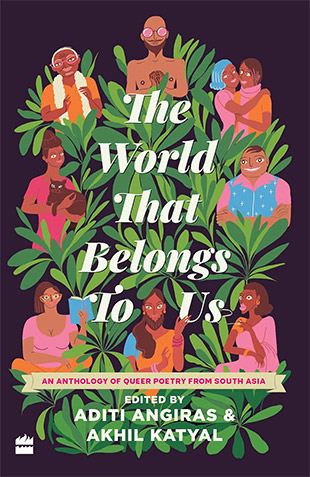
The World That Belongs To Us:
An Anthology of Queer Poetry from South Asia
Edited by Aditi Angiras & Akhil Katyal
Buy on Amazon | Add to Goodreads
They say This world isn’t for you
Why then was I born into it, if it wasn’t for me
– Phurbu Tashi, The World Isn’t for You
When Aditi Angiras and Akhil Katyal placed a call for queer poetry contributions for the The World That Belongs To Us anthology, it raised some pertinent questions. What constitutes queer poetry? It is a piece of poetry written by a queer individual? Can it include a piece in a related theme by a non-queer person? Where do asexuals and allies stand?
The result was a diverse anthology in the truest sense, featuring more than 100 poets from South Asia. From well-known voices to historical figures to first-time writers. Diverse in theme, ranging from desire and loneliness, intimacy to struggles, caste and language, activism and family. Equally diverse are the poetry styles, including haikus, prose, ghazals, sonnets, and free verse. The book also includes translated poetry across Indian languages.
If you enjoy poetry or want to explore diverse queer voices, do pick up the anthology.
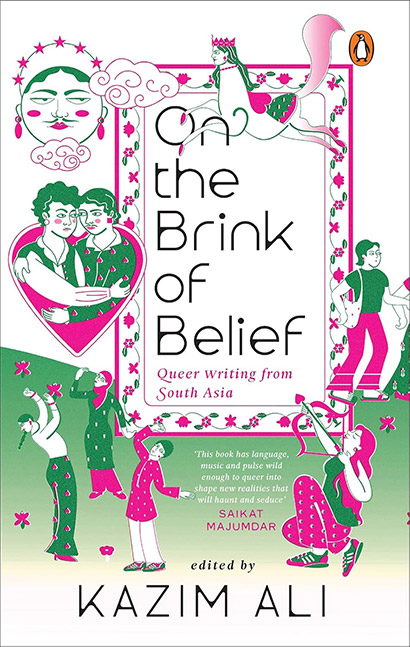
On the Brink of Belief:
Queer Writing from South Asia
by Kazim Ali
Buy at Amazon | Add to Goodreads
What does it mean to be queer, Muslim, South Asian, or from the peripheries?
On the Brink of Belief by Kazim Ali is a collection of prose, poetry, speculative fiction, and conversations where queerness meets faith. Reiterating that queerness and faith are not in conflict, but can co-exist. Divided across four sections, it explores the themes of love, loss, belonging, spirituality, and self-expression.
Emerging from The Queer Writers’ Room editions of 2023-2024 (a joint initiative by The Queer Muslim Project and The International Writing Program at the University of Iowa), it includes 24 voices from India, Pakistan, Sri Lanka, Bangladesh, and Nepal.
An essential, one-of-a-kind read.
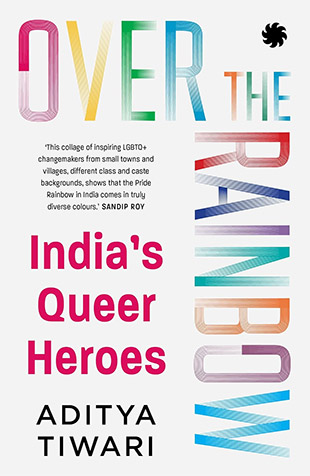
Over the Rainbow: India’s Queer Heroes
by Aditya Tiwari
Buy on Amazon | Add to Goodreads
Being gay is no longer a crime. Transgender individuals who had been ostracized earlier are now assimilated into almost all walks of life. Members of the Indian LGBTQ+ community have a lot more opportunities now. All this has been possible due to the queer heroes who paved the way through activism and public openness about their sexuality.
Over the Rainbow: India’s Queer Heroes by Aditya Tiwari pays homage to the journey and resilience of 19 such pioneers. Anjali Gopalan and Ashok Row Kavi who pioneered working with HIV/AIDS victims. Dalit and transgender activist Grace Banu who tirelessly campaigns for transgender persons. Restaurateur Ritu Dalmia, who fought against Section 377 through the press and in courts. And many more.
The book is a must-read.
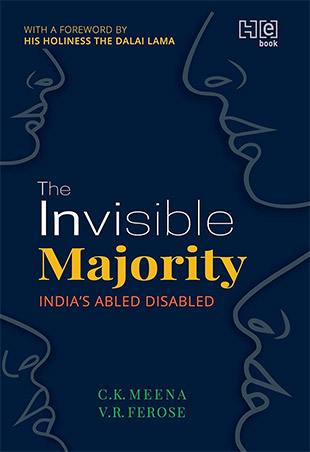
The Invisible Majority: India’s Able Disabled
by C.K. Meena, V.R. Ferose
Buy on Amazon | Add to Goodreads
People with disabilities are often rendered invisible. Either due to public apathy or inaccessible environments. Invisible disabilities and mental health issues are not even taken into consideration. While people with disabilities have refused to let their disabilities hold them back, society refuses to change its mindset. They are always expected to adapt to the world instead of the other way around.
The Invisible Majority: India’s Able Disabled is a comprehensive conversation about disability and inclusion in India. It examines where India ranks in relation to the seven pillars that support the foundation of an inclusive society – Advocacy, awareness, prevention/diagnosis, education, employment, lifestyle, and assisted living. It celebrates the empowered and empowering individuals with disabilities along with the caregivers.
The book is quite an eye-opener, and I highly recommend you pick it up.
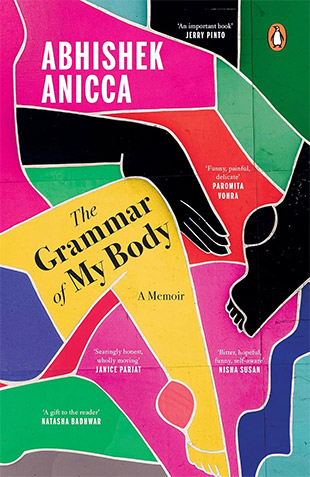
The Grammar of My Body: A Memoir
by Abhishek Anicca
Buy on Amazon | Add to Goodreads
We live in an ableist world where people with disabilities are reduced to symbols of inspiration. Often not in a good way (If they could do it, why can’t you?). Or tokenized come Disability Month or International Day of Inclusivity. Beyond that, there is often always a lack of apathy. Few efforts are made to preserve their dignity. To make public places more accessible. To establish a supportive environment at work.
The Grammar of My Body by Abhishek Anicca is raw, honest, and vulnerable. Beyond the “inspirational” narrative and false positivity, it is a stark and brutally honest look at what living with disability and chronic illness really is. A collection of deeply personal essays and poetry on body, disability, love, dating, and politics.
An uncomfortable yet powerful memoir that questions your own assumptions. Highly recommended.
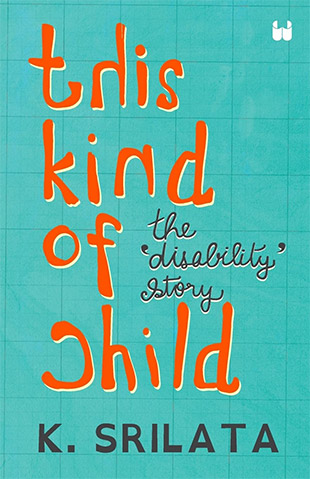
This Kind of Child: The ‘Disability’ Story
by Srilata K.
Buy on Amazon | Add to Goodreads
‘I am the mother of a child who did not fit the school system, a child who was disabled by it……. We were told by the principal of an alternative school that they could not possibly admit “this kind of child”. My daughter went from being a child to “this kind of child” in that one moment.’
What began as a collection of interweaved short stories about a girl who did not fit the school system transformed into a space for the voices of people who’s bodies and minds are not neurotypical. For their families, caregivers, and educators.
This Kind of Child: The ‘Disability’ Story by Srilata K. is a collection of personal essays, conversations, and short fiction. It questions why institutions fail and penalize individuals for inhabiting certain bodies and minds. It challenges systemic barriers that make life more difficult for people with disabilities. One of the few books that explore neurodiversity in India.
Books are often the best tool to educate ourselves. Such books are crucial for a more inclusive and diverse world. Do you have a similar recommendation? Do share in the comments below.
Transcending Tokenism: LGBTQIA+ and Disability Narratives from India and South Asia #BookishLeague Share on X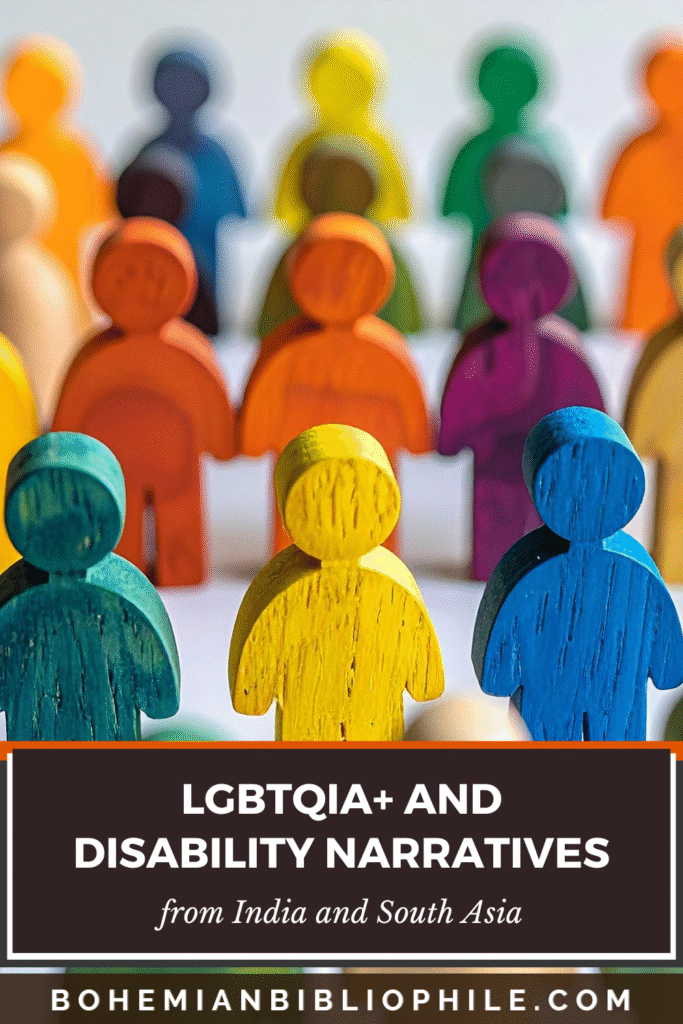
This post is part of the Bookish League blog hop hosted by Bohemian Bibliophile.
This post is a part of ‘Currents of Kindness Blog Hop’ hosted by Manali Desai and Sukaina Majeed under #EveryConversationMatters
Photo credit: Canva.com

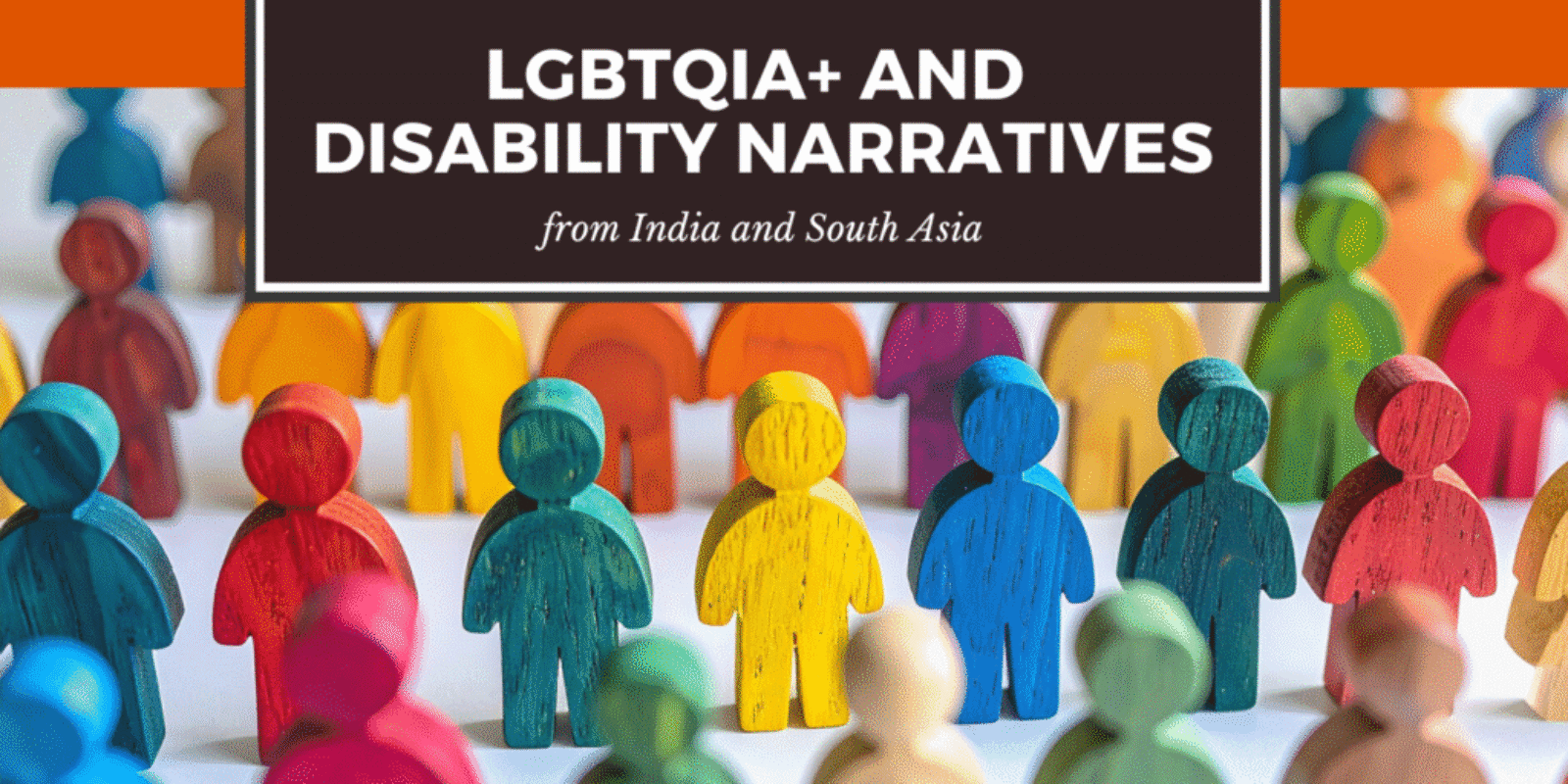
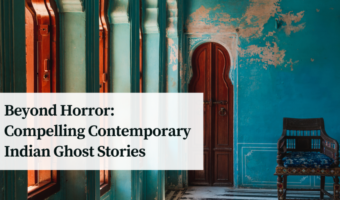


October 14, 2025 @ 12:01 pm
I usually think India is at the bottom of the pole in terms of being an inclusive society. This in itself is a conundrum since India’s true strength is its diversity and most people are accepting of it. But when it comes to LGBTQ rights or creating safe spaces for the disabled, we somehow falter…badly.
I liked this bookish list, that gives voice to people who the majority usually ignore.
October 17, 2025 @ 11:25 am
It’s great to know that there are so many books on these important issues. “This kind of child” – Ah, that’s a powerful metaphor here.
October 19, 2025 @ 10:13 am
It’s always a pleasure to find curated reading lists, especially on timeless, relevant topics, those that can easily be forgotten if not for relentless reminders.
Thank you for this, have put a couple of them into my TBR.
October 19, 2025 @ 10:14 am
The book that stands out for me, “this kind of child.” So powerful
October 19, 2025 @ 11:04 am
The reading list is excellent — especially the mix of queer and disability voices. I liked how you went beyond slogans and focused on everyday inclusion through books and awareness, and dug deep.
It’s a great reminder that change starts with what we choose to read, learn, and talk about. Because when we read, we change, and when we change, we cause change in others.
It reminds me of the Micheal Jackon’s (not the best example, but khair):I am looking at the man in the miror.
🙂
October 19, 2025 @ 7:29 pm
Thank you for the wonderful list/recommendations, Ritu.
October 21, 2025 @ 4:49 pm
Rightly pointed out… we need books to banish our ignorance. This list seems well curated and shall be beneficial to many. Hopefully, this blog will pave the way for further inclusivity.
October 22, 2025 @ 4:16 pm
Thank you for a great compilation. It is sad that I haven’t read any of them but we do start somewhere and your list is just that for me.
October 22, 2025 @ 4:38 pm
Thanks for these superb recommendations, Ritu. This Kind of Child and The Grammar of My Body have been on my TBR for a while. Seems I need to get to those two and even the rest of the ones in this well-curated and thoughtful listicle
October 23, 2025 @ 11:39 am
I’m surprised with this fresh titles I’ve never heard before. Thank you so much for curating this list. Saving it!!
October 23, 2025 @ 12:02 pm
A thoughtful list, which would be a great place to start. From thinking about inclusion to bringing it into mainstream life as an integral part rather than an afterthought. Thanks for curating this list.
October 23, 2025 @ 2:43 pm
This Kind of Child – the very title speaks of the feeling of exclusion the child must go through everywhere. This list is so well curated. As Harshita said, India is at the bottom of the pool as far as inclusivity is concerned. May the world reform, and the people who live in it too!
October 23, 2025 @ 7:15 pm
Thank you for curating this list. My tbr list keeps getting bigger and bigger. I have heard about a couple of them but this motivates me to read them sooner.
October 23, 2025 @ 8:30 pm
There is so much literature on inclusion of the LGBTQ yet it feels insufficient. Books and carefully curated listed like these will certainly help to lift the taboo. I admire your dedication to this subject because to make a list of handful, you must have read ample.
October 27, 2025 @ 3:10 pm
I’m not prejudiced or bigoted, but LGBTQ lit leaves me uncomfortable with the very idea of excluding people different from the decided norms. The book that caught my eye from your list is ‘On the Brink of Belief by Kazim Ali’. Religions have been hard on people with different sexual orientations, so this should make for a good read. I recently read a Percy Jackson Universe book, The Court of the Dead, a Nico di Angelo adventure. It was a surprisingly good read with queer demi-god protagonists. It just shows how fantasy has evolved beyond the fairy tales and magical brooms.
October 28, 2025 @ 7:38 pm
This list is pure gem. Thanks for sharing it. The detailed idea and descriptions on each book make it easier to pick.
November 3, 2025 @ 7:57 pm
The grammar of my body is on my list to read too
November 4, 2025 @ 6:45 pm
Somehow, I have a strong inclination towards exploring the bold and honest narratives, and frankly, queer literature is one of the best places where I have read such pieces. The books you have talked about show the need for empathy, compassion, and support we should have towards these brilliant people, to make them believe that this world belongs to them, too.
November 5, 2025 @ 10:08 am
It’s encouraging to see diverse voices highlighted—especially those that challenge societal norms and inspire real empathy. This reading list is a powerful step toward genuine inclusivity, and I’m excited to explore these titles to learn, unlearn, and contribute to positive change.
November 7, 2025 @ 9:00 am
I love how your well-curated listicle goes beyond surface-inclusion and invites us to truly engage with voices at the intersection of LGBTQIA+ and disability in South Asia. Thanks for sharing these vital perspectives—definitely tucking a few of these into my TBR.
November 15, 2025 @ 12:26 pm
As always you bring something new to the table, the lesser know genres that talk about being different.These books reflect the condition of the different in our society. I think bookshops should dedicate a section to such brave literature.